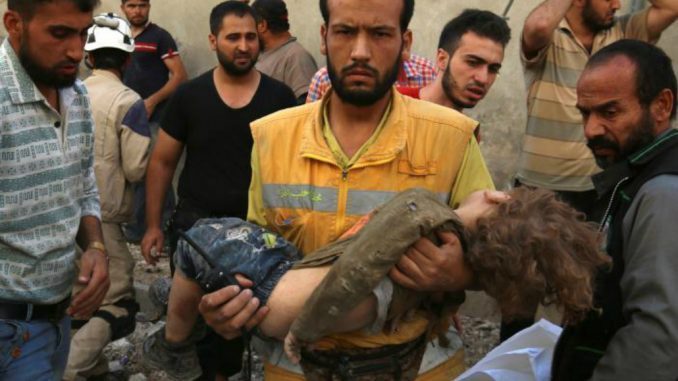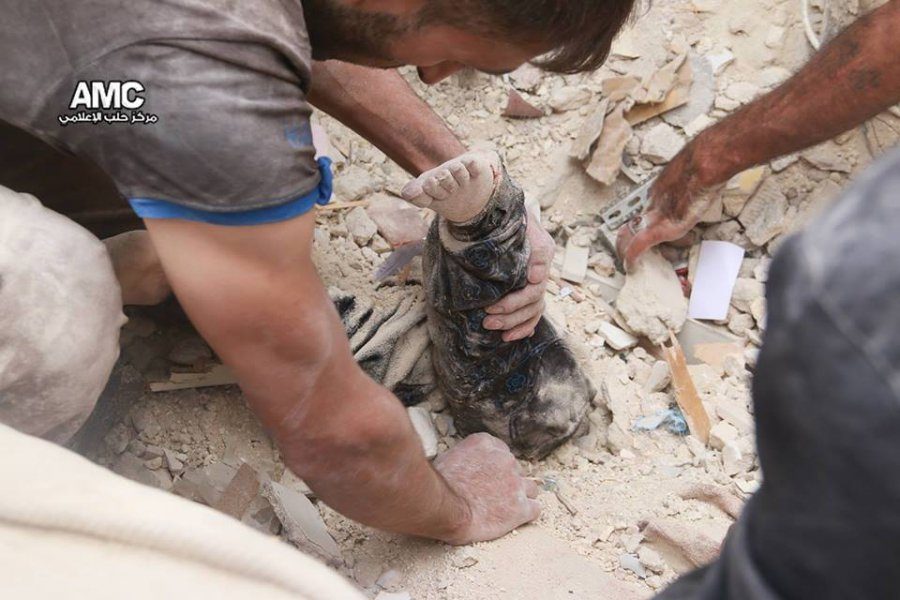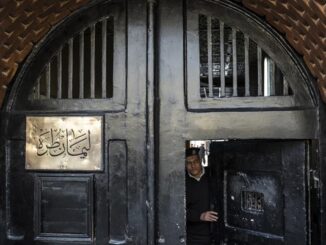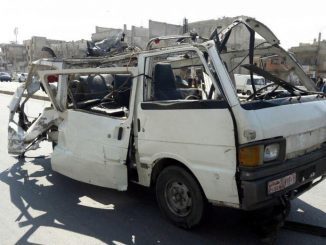
A new team is being gathered by the United Nations to prepare prosecutions of war crimes committed in Syria by the various warring sides, U.N. officials and diplomats said on Thursday.
The first major policy announcement under the newly inaugurated UN secretary-general, António Guterres, the unit will “analyse information, organise and prepare files on the worst abuses that amount to international crimes”, a UN human rights official said.
The team will investigate “primarily war crimes, crimes against humanity and genocide, and identify those responsible”, the official added. Although it will not be able to prosecute, the unit will prepare files that could be used in future prosecutions by states or by the international criminal court in The Hague.
The focus on prosecutions also means evidence collected since 2011 by a UN commission of inquiry may be sharpened into legal action.
Legal experts and activists welcomed the initiative. “The focus is on collecting evidence and building criminal cases before the trail goes cold,” said Andrew Clapham, professor of international law at Geneva’s Graduate Institute of International and Development Studies.
Jeremie Smith, of the Cairo Institute for Human Rights Studies, said the UN must lay the groundwork for prosecutions ahead of any “exodus” of perpetrators when the war ends. “This is the only way to make sure criminals don’t get away by fleeing the scene of the crime,” he added.
The commission of inquiry has issued 20 reports accusing Syrian president Bashar al-Assad’s government, rebel forces and Islamic State of mass killings, rapes, disappearances and recruiting child soldiers. It too lacks a prosecutorial mandate, but has denounced a state policy amounting to “extermination” and compiled a confidential list of suspects on all sides, which is kept in a safe.
Human rights organisation Amnesty International last week claimed the Syrian government executed up to 13,000 prisoners in mass hangings and carried out systematic torture at a military jail. Syria denied the report, calling it “devoid of truth”.
A UN report in January put the start-up budget for the new team at between $4m and $6m. Funding is voluntary and so far $1.8m has been donated, the UN official said.
Collecting evidence for cases
According to diplomats, the UN is aiming to recruit between 40 and 60 experts in investigations, prosecutions, the military and forensics. “It’s a very important step. It will not only allow court cases but also help us preserve evidence if there are cases in the future,” a senior western diplomat said.
Legal experts and activists welcomed the initiative.
“The focus is on collecting evidence and building criminal cases before the trail goes cold,” said Andrew Clapham, professor of international law at Geneva’s Graduate Institute.
Jeremie Smith of the Cairo Institute of Human Rights Studies said the United Nations must lay the groundwork for prosecutions ahead of any “exodus” of perpetrators when the war ends.
“This is the only way to make sure criminals don’t get away by fleeing the scene of the crime.”
The new team will seek to establish command responsibility.
“This is mass collection of information on all sides with a view to prosecution in the future by the ICC (International Criminal Court), national courts or in some completely new international tribunal that would be created,” Clapham said.
Many national courts could pursue suspects using the unit’s dossiers, Clapham said. States that have joined the international criminal court could bring cases without referral by the UN security council.
Assad regime’s crimes
The Syrian crisis began as a peaceful demonstration against the injustice in Syria. Assad regime used to fire power and violence against the civilians and led to armed resistance. 450.000 Syrians lost their lives in the past five years according to UN estimates, and more than 12 million have lost their homes.
Iِn addition to the airstrikes, bombardment and using of prohibited weapons against the civilians, the Assad regime used also arrests, torture, enforced disappearance, and executions as tools to silence anyone suspected to oppose his role and to break the Syrian civilians’ will in gaining freedom.
Tracking the number of people in detention is also difficult. Assad’s “security forces” have converted sports stadiums, abandoned homes, hospitals and schools into jails. Loyalist militias from Iraq, Lebanon and Iran also operate their own secret sites.
However, estimates say that more than 300.000 Syrian are currently held in Assad regime’s prisons, while the Syrian Observatory for Human Rights say that more than 60.000 of them were killed under torture.
What little is known about Assad’s torture machine comes from survivors swapped in prisoner exchanges or released after bribing officials. Relatives of the dead, defectors and hundreds of thousands of regime files smuggled out of the country by activists add to their accounts. Together, they paint a picture of a regime that has tortured and murdered on an industrial scale to silence dissent.
A new report for Amnesty International said that about 13.000 people were hanged secretly and thousands more killed by other ways in Saydnaya prison, one of the most famous brutal detention centers in Syria.
Detainees referred to the prison as “the slaughterhouse”, it said, adding that the hangings had been authorized by officials at the highest level government from 2011.
In August 2013, a military defector code-named Caesar smuggled 53,275 photographs out of Syria. The photos were published depicting rows of emaciated, brutally beaten bodies of detainees — many of them believed to be political protesters — at Assad regime’s military prisons, and show at least 6,786 detainees who died in detention or after being transferred from detention to a military hospital.
Most of the 6,786 victims shown in the Caesar photographs were detained by just five intelligence agency branches in Damascus, and their bodies were sent to at least two military hospitals in Damascus between May 2011, when Caesar began copying files and smuggling them out of his workplace, and August 2013, when he fled Syria.



